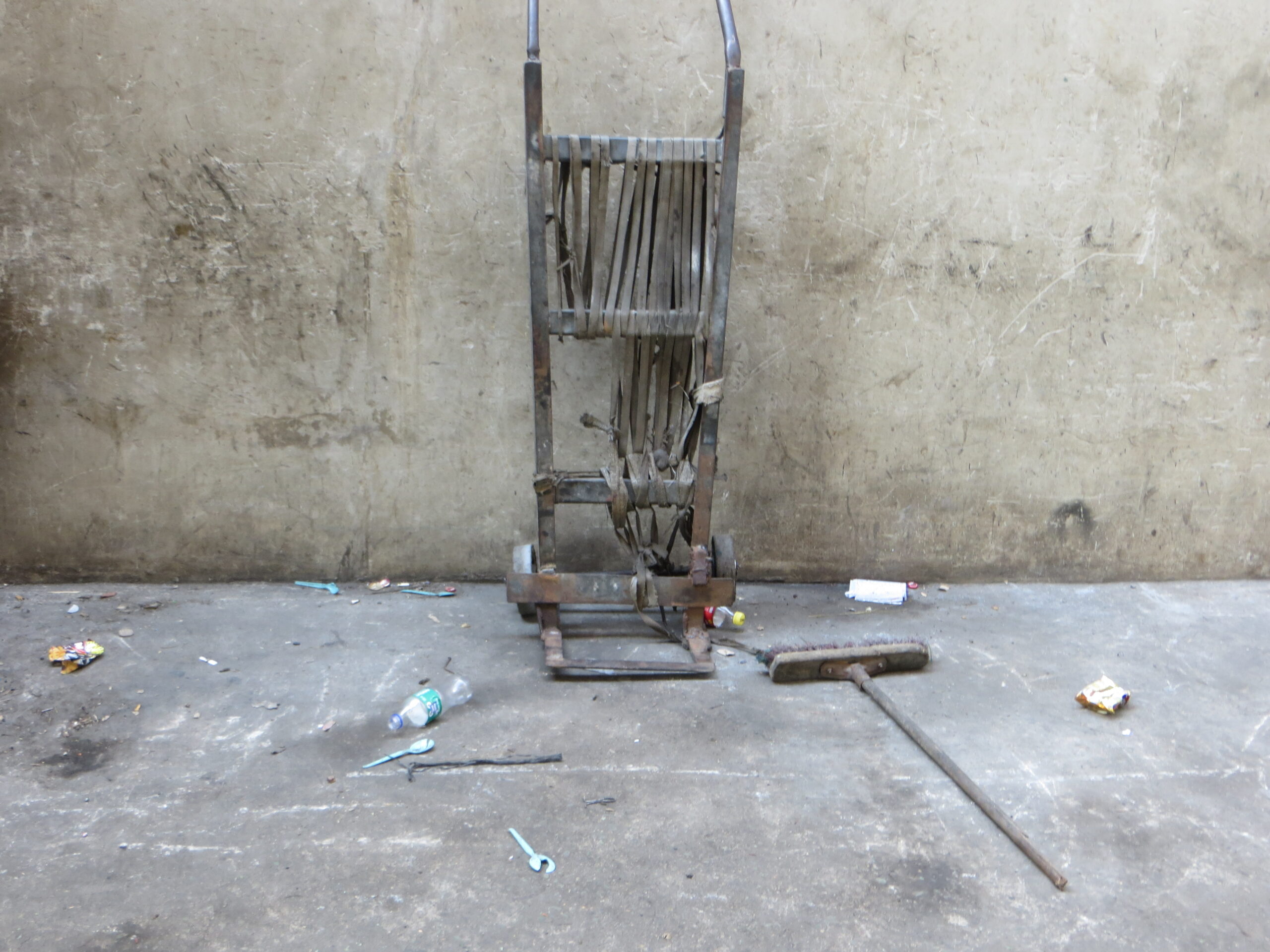By Priyanka Govender
Barrow operators are an integral part of the well-oiled machine that is the inner cities’ Warwick Junction. They play a huge role in the street ecosystem by acting as a transportation service. They cart heavy cargo to and from places on their equipment. Their routes can take them through busy roadways or bustling, crowded market spaces for clientele that ranges from shop keepers to people who need help with their bulk shopping. They are vitally important to the functioning of the informal economy and continue to execute their role despite the discrimination and many struggles they encounter.
Barrow operators work on average, 12 hours a day, 7 days a week. Many pursue other side businesses in their spare time and operate their barrows during key times of traffic in the day. They deliver trader’s goods from storage at the beginning of the day and return them at the end, as well as help other market goers with their cargo when needed. They split their sleep between night and day, leaving the busy hours in the night open to work and choosing instead to catch naps during the day when they can. They work in any and all weather which includes Durban’s hottest days as well as the heaviest rain. Many have families in more rural areas and spend whole weeks out of the month commuting to and from their homes.
“Sometimes you have to come to work even if you’re not feeling well, you have no one to replace you, it’s a tough job.”
The equipment they use is often improvised, and made from found pallet wood and steel. If a barrow is in good condition, it can last about five years with proper care. Barrow wheels are often damaged traversing tough terrain. And due to Durban’s notorious heat, the tarmac softens, making the barrow even more difficult to manage with rubber wheels and more susceptible to damage. Majority of barrow operators prefer rubber wheels because they are durable and easily absorb shock, but they are more expensive. This compels many to buy a set, as buying just one is more expensive long term. The cost of this averages around R900. But it’s not only wheels that get damaged- sometimes the barrow breaks in half because of frequent harsh impact, such as when you are carrying a heavy load and you hit a pothole. When the barrow breaks, it damages the framework and sometimes even the goods that they’re transporting, which they are then responsible for replacing. Repairing a broken barrow, with proper welding and reinforcing to ensure it can withstand daily wear and tear, costs around R600 and the loss of a workday. And if an operator is short on funds for repairs, it’s impossible to get someone to provide a loan so many stay idle and don’t work, loosing essential profit.
”Earnings have gone down quite a lot, if informal traders aren’t making any business, it also affects us. Things are bad, goods are expensive, if the people who hire our services are not making money, it affects us as well.”
On average, operators will work in a radius of about 5km but will occasionally go to places like the Durban Beachfront, which is about 8km, depending on their customers. When on the road, they face countless obstacles. When loadshedding hits, traffic lights stop working and it becomes quite dangerous for the operators to maneuver between traffic. The heavy traffic they must navigate can get very dangerous especially when motorists and taxis harass them out of impatience. Often, by mistake, a taxi is scratched by a barrow and compensation is demanded. With the payment typically being not less than R1000, many operators don’t have cash and as a consequence their barrows are confiscated until the debt can be settled.
Due to the lack of non-motorized transport lanes, most operators contribute to traffic congestion which results in harassment from some police which includes either a hefty fine or the confiscation of their barrow. If an operator’s barrow is confiscated, most officers won’t tell them where their taking it which leaves them the only option of buying a new one. This can cost anywhere between R1700-R2000. A second-hand barrow is not easily obtainable, and will most likely end up in majority of profits spent on repairs.






